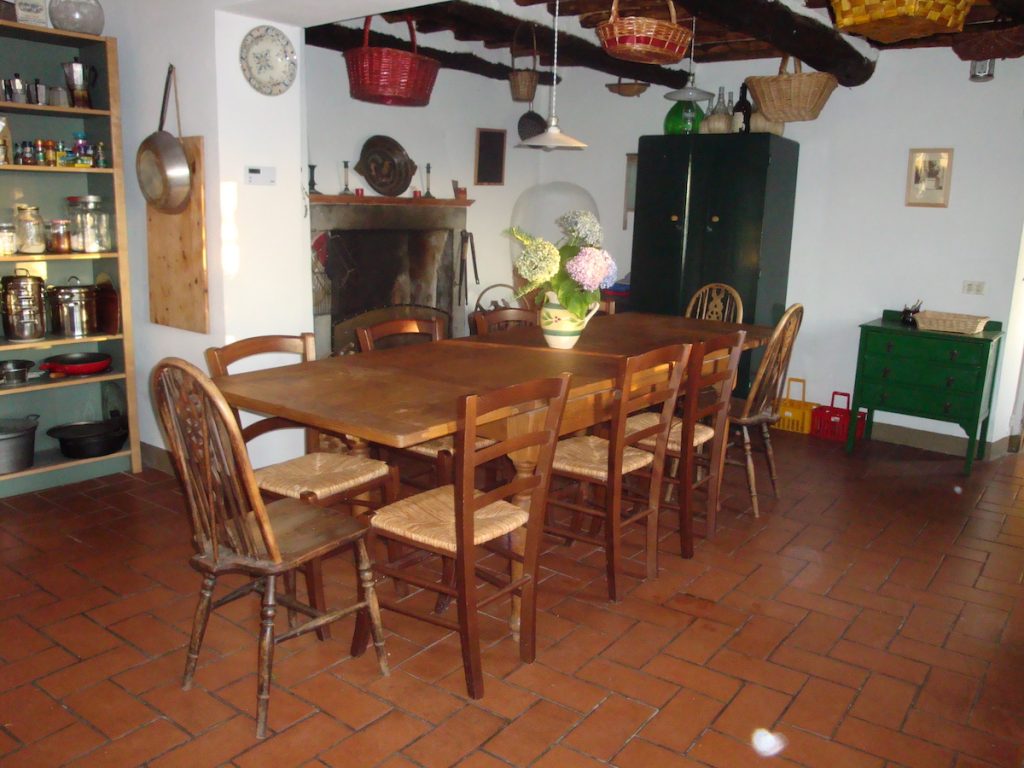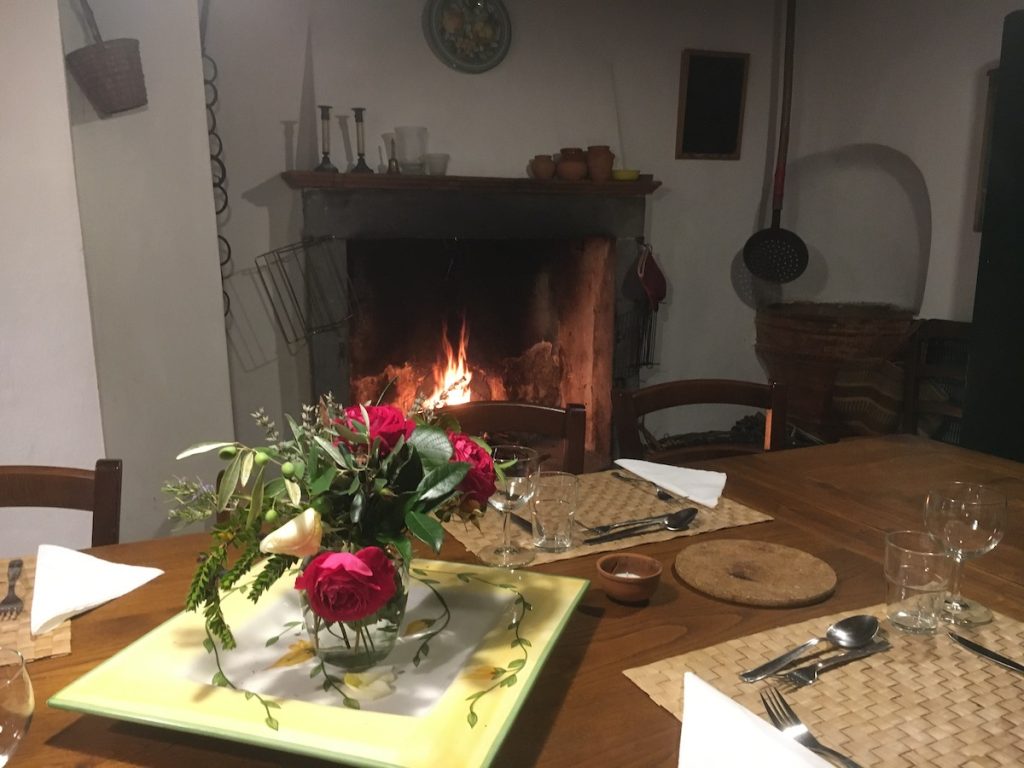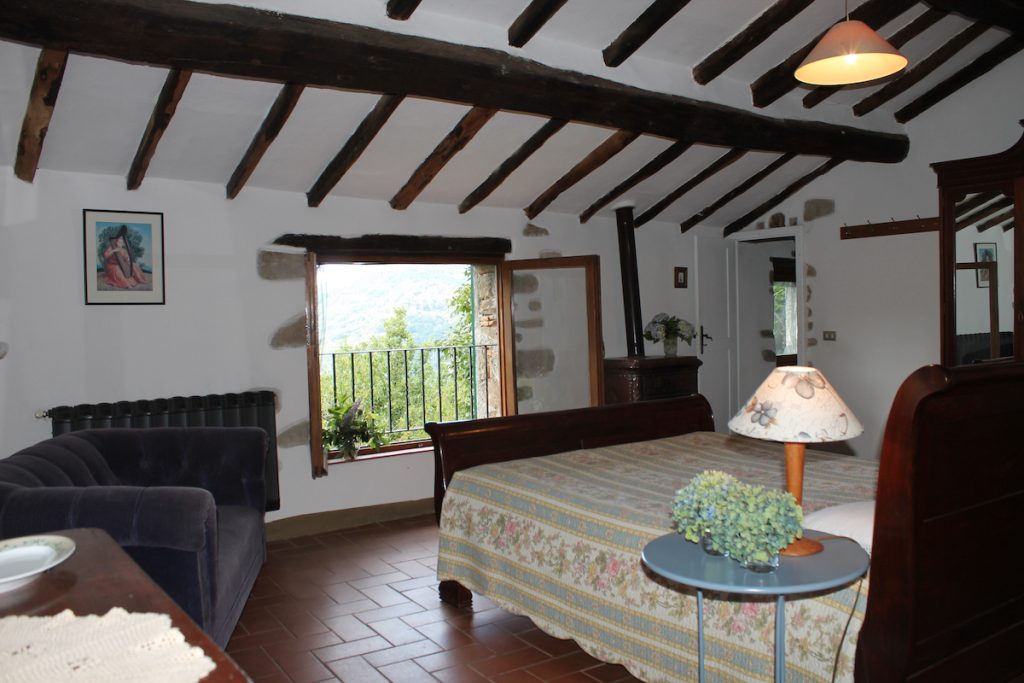Twenty years ago, Enzo and Celia moved permanently to Italy from London to pursue a better quality of life for themselves and preschool aged daughter. Although born and raised in Naples, Enzo always loved the Tuscan countryside and Celia, of course, did too. Captivated by the painterly view of mountains and national park, they bought and lovingly restored a 17th century farmhouse villa. Last year, while in lockdown, an access road collapsed keeping Enzo and Celia at home more than they expected. With a desire to share the beauty of their region to the world, as well as Enzo’s passion for traditional recipes, they picked up their iPhone and started storytelling. We spoke to them about why they moved and their YouTube channel, “Piazza Talk”. We hope you enjoy this month’s “Chat with an Expat”!
A Note to Readers
Leggi questa intervista (o seguendo il video) in italiano o spagnolo cambiando l’opzione di lingua che trovi nella parte superiore del sito.
Remember that if your first language is either Italian or Spanish, you can use the interview below to follow along in your native language.
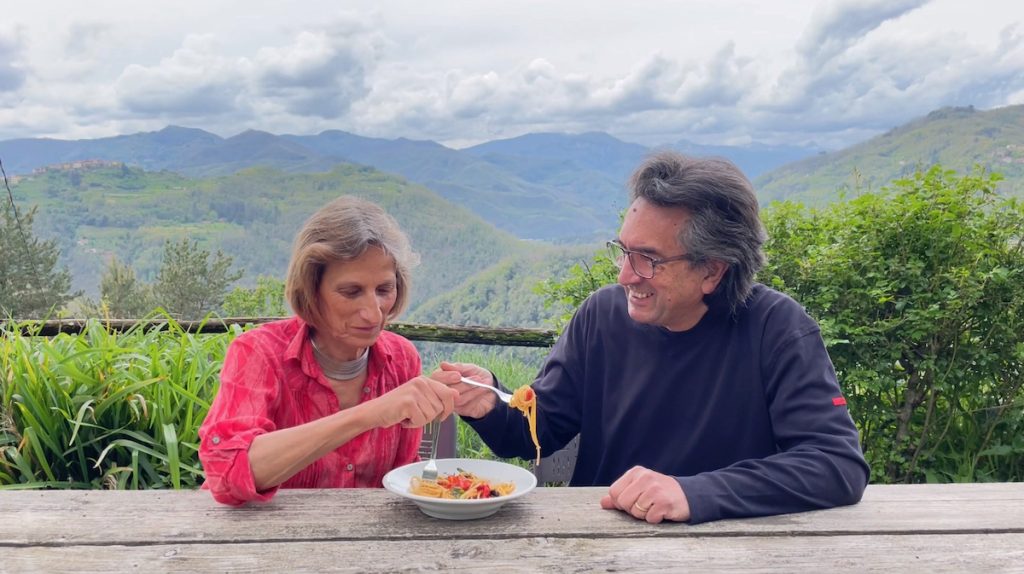
Where are you from?
Celia: I’m from London. I was born quite in the center, just off Oxford Street and grew up in Richmond along the Thames. Then in my adult life before coming to Italy, I lived in North London near Camden Market.
Enzo: I was born and brought up in Naples. Then at 18, I joined the Merchant Navy. I went around the world but came back to Naples to finish university. I’ve also lived in the UK and worked in the US.
Celia, when was the first time that you traveled to Italy?
As a very small child. My father had work connections in and traveled to Italy. He was in love with Italy! My mother always tells the story of him driving around Rome the wrong way around a one-way street. He argued with the policeman in Italian, so he got fined. I have these memories of being a very small child in Italy. But my father died very young, so I didn’t come back until I was about 16 or 17 with my sister for a summer holiday. I never really thought about Italy in the meantime.
Did your father speak Italian?
Yes, he did. He was a very good linguist.
As a very small child, I remember that he would go to central London to one of the few Italian shops to buy good olive oil and Italian produce.
How did you meet?
Celia: We met in London at an exhibition about ancient Qurans. I was working on this exhibition with an Italian who happened to be Enzo’s best friend from university.
Enzo: The rest is history.
Celia: Just after the first dinner where we met, we had arranged to meet again. I was picking up some photos of some objects that we were working on and I fell against a marble pillar. (Take note that it was marble.) I split my head open. So, after work, Enzo took me to a surgeon who then started discussing with him about stitching or gluing my head. (Consider that I’d only known him for 24 hours.) Because he was a nice guy, Enzo offered to move in and look after me and then he never moved out again.
Enzo: My flat mate was upset because I disappeared. Anyway, since then we have been living together for a long time.
Celia: Nearly 30 years.
What is your profession?
I am a book conservator and binder. I was restoring Qurans, but we also worked on exhibitions. I had another life before. I started off as a classical harpist.
What were you doing in the US and elsewhere, Enzo?
In the United States I worked for two different companies. I was based in Mississippi and Texas. I was also in the Middle East. At some stage, I took one year off and decided to stay in London. Just before I was to return to my career, I met Celia and then my life changed. I started working in London, had a small business, and also taught in schools.
When did you decide to move to Italy?
Celia: I think the decision came after the birth of our daughter. London is everything and absolutely wonderful, but suddenly when you have a child you see the worst of the city rather than the best. So, we wanted a different lifestyle for her. Also, Enzo didn’t want to have to go away and miss his daughter growing up.
It seemed like a good way for us both be with her. We decided that maybe a change of life was needed. It happened by fluke because we went to Naples to show our daughter to her grandparents and went with some friends to southern Tuscany.
We fell in love with life in a Tuscan village.
A Community with Families
We went back to the village a year later and realized that it was so remote. We were two people from inner-city life and that was perhaps one step too far. We needed a community that was nearer to a city and an airport.
Enzo: On the way back to London, a friend in Lucca called to suggest that we pop in to say hello. We did and he was very pleased to see us, and we fell in love with the area. A year later we came back and started house hunting. We took about five weeks because we saw a lot of properties.
Celia: We chose the village first. It had an all-year population and a lot of children. It was very active.
Enzo: It is very lively.
Celia: Our daughter was four and a half when we moved so it was important to have other families around.
Enzo: The province of Lucca is the perfect place. Our daughter went to the village school and she had a very good start. The education is very good.
Celia: Education was another big reason for moving here. There’s a very good state education system and that was something we really liked.
Is your daughter’s first language Italian?
Celia: She is absolutely bilingual. It’s quite interesting because all children learn to be bilingual in different ways. She spoke in parallel lines until she was six. If you asked her when she was very little, “how do you say that in Italian” she wouldn’t know. It was at six that she began to translate between the two languages.
I taught her how to read in English before she went to school. Then she learned to read in Italian at school.
Enzo: Now when she speaks Italian, she has a Lucchese accent. When she speaks English, she has a native English accent. Nobody would know that she is not fully British.
Do you (Celia) speak Italian?
Yes. When we lived in the village, I was the only English full-time resident. I didn’t sit down and really learn the language until a few years later. I did all the exams, because I decided at some point that you shouldn’t learn a language entirely by osmosis.
Enzo: She joined the course offered by the University of Sienna and she used to go about twice a week.
Celia: It’s a government scheme and you pay virtually nothing. You go twice a week. I joined at the highest level since I had already done the others. At the end, I can only thank my classmate who was a Romanian scientist and very disciplined, unlike me. She dragged me through it! It’s not an easy exam.
Becoming an Italian Citizen
Celia: I got my citizenship about twelve years ago and I was the first British citizen to get citizenship in Lucca in 50 years. Now everyone wants it.
Enzo: So, there’s a long queue!
Celia: At the time, I thought of it as a bureaucratic thing, but in fact it was quite emotional. The lady at the comune (municipality) was in tears. She thought I wanted to do it for romantic reasons because if something happened to us, we’d all get repatriated to Italy. So, we all ended up in tears. It was quite funny!
Living in Lucca
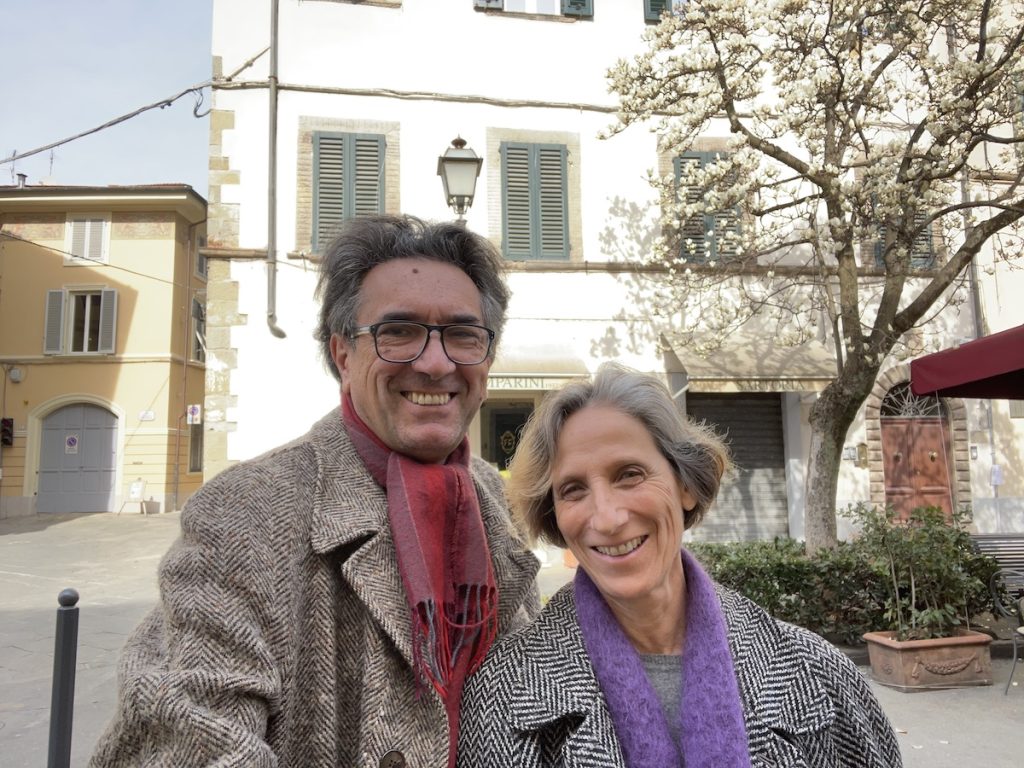
Celia: We spent eight years entirely up in the hills and then we came into the city of Lucca.
Enzo: You have virtually everything you need here.
Celia: We live within the Renaissance walls.
Enzo: It’s a beautiful place to live. The circumference of the walls is about 3 miles and everybody likes to take a walk.
Celia: In the summer and almost every night, there’s a slight breeze come up that saves the city from the summer heat. There’s a microworld going on up there like people doing sports (yoga, Tai Chi) or who play chess, study…
When did you start the ‘Piazza Talk’ YouTube Channel?
Celia: A year ago during lockdown. We chose to spend lockdown in the country. We settled into a very simple life like chopping down neglected trees and used them to heat the house. Then we had a snowfall which was quite unusual for many years. Our access road fell down and we were cut off. Suddenly we had time. People had really suffered in an area of tourism. So, we wanted to do our tiny bit for Bagni di Lucca (the spa town of Lucca) and the village, and try to show people what an amazing area it is.
At the beginning of the century, Bagni di Lucca was the top resort and anybody who was anybody went. Since then, it’s been in decline and long forgotten. It was a place that we want to bring the right sort of tourism back. It has an opportunity to have a renaissance in a very nice way.
Enzo: The thermal baths have been there for over 2000 years when the Romans used them.
Celia: And of course, there are beautiful villas and it even had a foreigners club. It was a very cosmopolitan place and the English people who were living in Florence, used it as an escape from the heat in the summer months.
Enzo: It is quoted in many novels including Trollope. While in London, I found many books that had nice stories about Bagni di Lucca that I did not know at the time.
Celia: And of course, there are the romantic poets.
Why did you call your channel “Piazza Talk”?
Celia: It refers to where we live, on a Piazza and that is the place where everybody meets. All happens in a Piazza. That’s where we talk with people: local nonsenses, football, history, politics…
That tradition has not stopped in modern times or among younger people?
Celia: Not at all.
Enzo: Absolutely! Young people meet there together.
Celia: Our daughter says that what she remembers as a teenager, is sitting on steps. Particularly when young people don’t have much money, they talk.
Lisa: It’s so great to know that real conversations are not totally replaced by technology.
Celia: Italians are very gregarious by nature. This is a small city so every time I go out, I’m going to meet somebody. We may have a coffee or a few minutes conversation. You know all the shopkeepers and they know you and so on. It’s a very sociable life.
Video Tasks
Celia: Because we were stuck up a hill in lockdown with snow outside, a friend of ours gave us editing software, but boy was it complicated! So, we sat down and learned it.
Enzo: For the first video we didn’t have anything. We have an old iPhone that I went out in the snow with and shot the first video.
Celia: Then we got a slightly better phone, but nevertheless we are very basic and still are.
Do you share the editing tasks?
Enzo: Yes, we do. We share everything!
Coming back to the iPhone, a few months ago we were asked by someone in Los Angeles to collaborate on a project about food. They told us, “you have more technology on your iPhone than we do in LA!” So, we cooked and interacted with people, and it worked out really well.
Talk to us (Enzo) about your idea of sharing recipes.
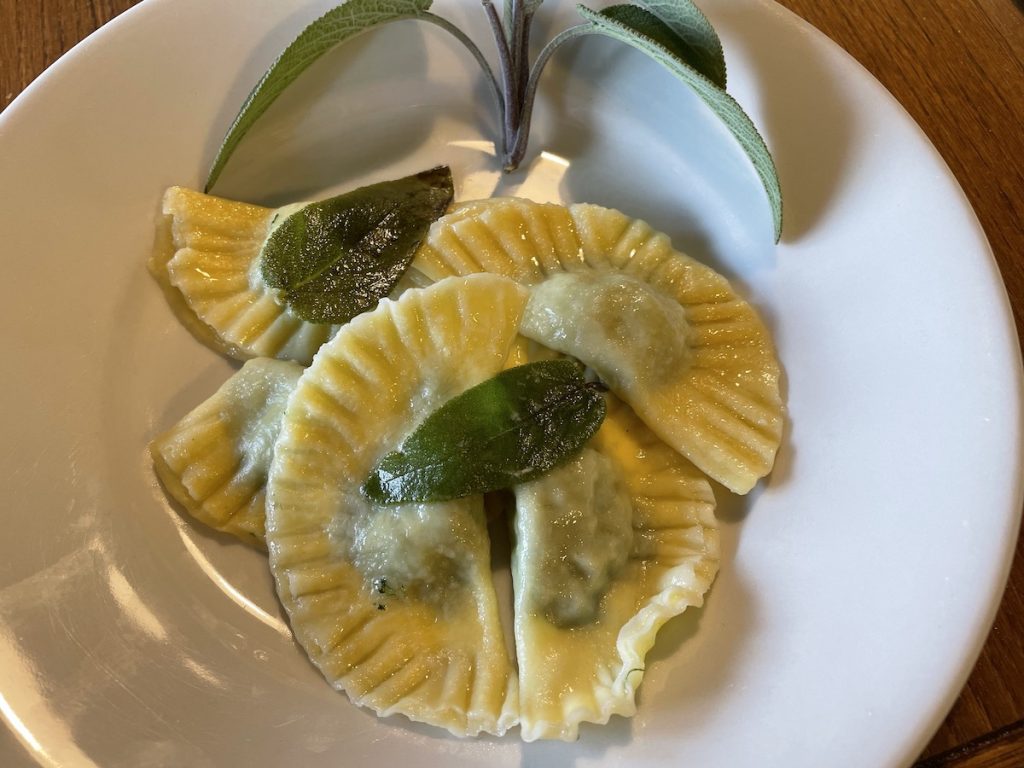
Enzo: We wanted to make food videos because we cook a lot here. Italian food doesn’t take a huge amount of time. You can make a gourmet meal with spending days and days. When I was in London, I never had takeaway food. Even on my own, I cooked everything myself.
So, we wanted to share the food that we make with a larger audience. I belong to some Facebook groups based in the US and they have been writing me to say that they’ve been making the recipes. I am very happy about it.
I find cooking very relaxing even if you come from a very heavy day. It’s kind of like yoga!
How did you learn how to cook?
First of all, from watching my mother. When I was in the Merchant Navy, we ended up together in places like Africa near the River Congo. We were Italians and Americans mostly and decided that we wanted to cook. So, we turned our kitchen into a proper ‘Michelin Star’ restaurant!
We worked very hard: sometimes 72 hours without going to bed. We began fishing and organized our supplies to make fantastic meals. So, I learned a lot of techniques from my mates.
La Tavola (The Table)
Celia: We used to go to a friend’s fourth century tower in the summer and the kitchen was literally a camping stove and sink. There would be ten of us and these amazing meals would come out. Italians basically don’t need anything to create good meals. I think that’s one of the great things that I love about Italy is ‘the table’. Food and the table are still the center of the Italian family. I don’t know if it has changed in Rome or Milan, but certainly in Lucca, Naples, and the Tuscan countryside, life is around the table.
Children come home from school (except from junior school) and have lunch which is a big thing. It has changed a little bit because Americans are coming in.
Nevertheless, food and the table are sacred.
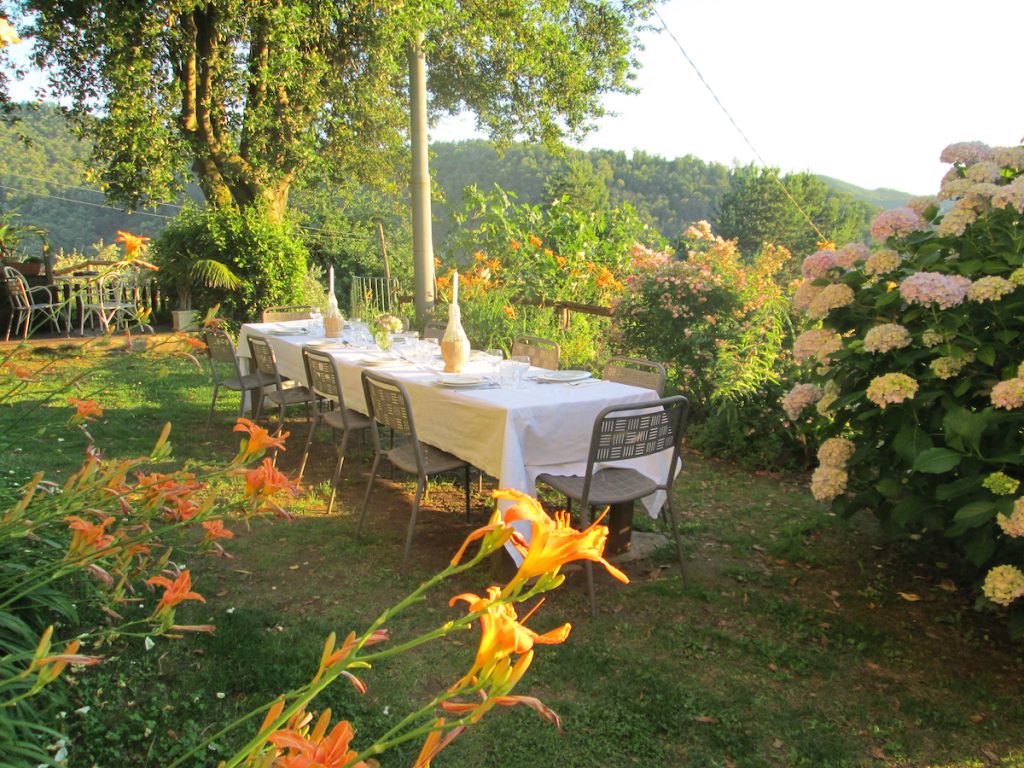
One thing that I’ve learned, as an outsider and somebody who didn’t cook, is that you can cook with very few ingredients. Here we are lucky that everywhere and even in supermarkets, we have good quality ingredients. For example, vegetables taste like vegetables, so you don’t need all these sauces to put on top. I think that makes Italian food very delicious and you can still taste individual tastes. In the UK, they put a lot of ingredients into things.
In the UK, we discuss the weather, but here it’s always food!
Foraging
Somebody from the village taught us what to look for and what’s good to eat.
Enzo: In the soup that we made for the video, we used about ten wild herbs from the garden. Some were very interesting and ones that we never thought would be edible.
Celia: In the village, people go out to collect them all the time.
Enzo: We use them for pasta instead of spinach.
Le Mura Villa Tuscany
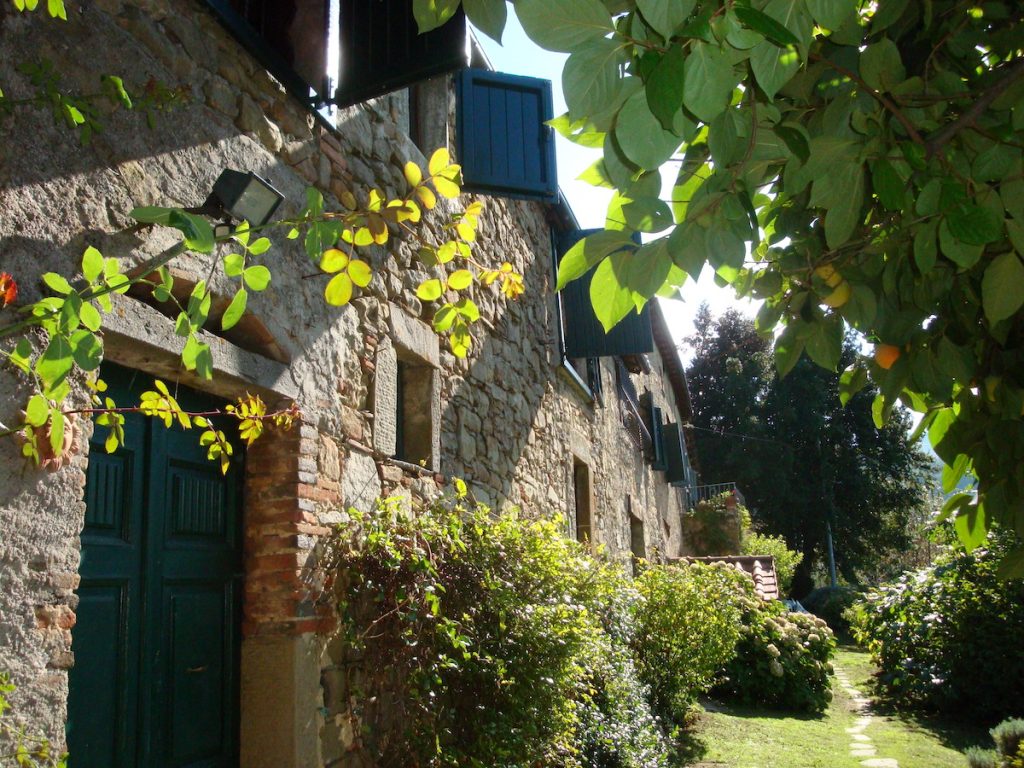
Celia: Le Mura is our house in the countryside. We purchased it in 2000.
Can you tell us briefly about the process of buying it?
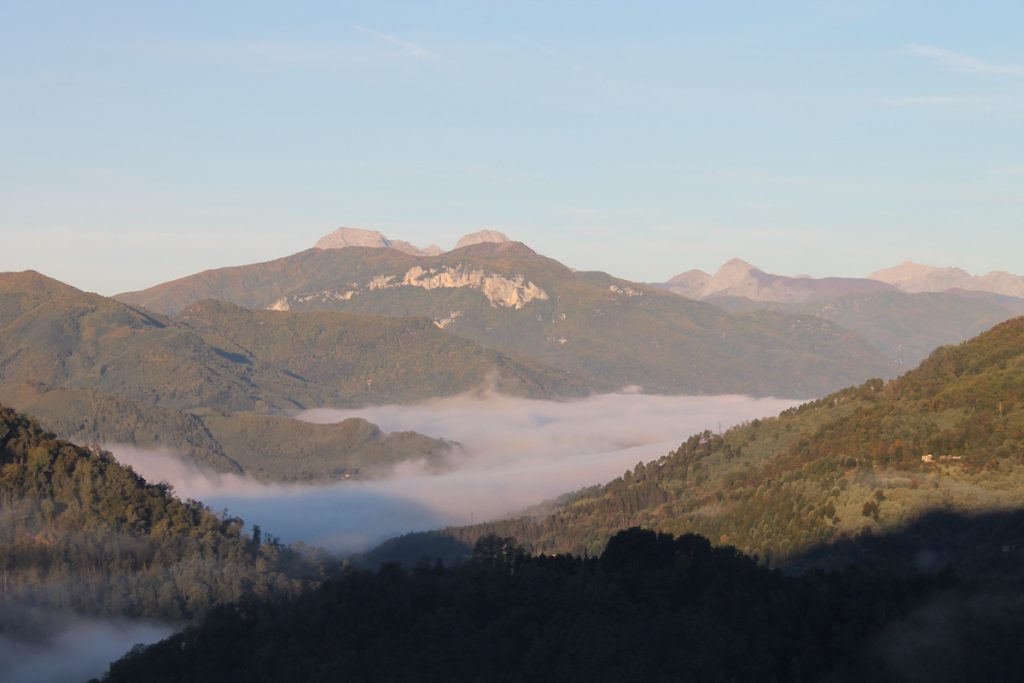
Celia: We chose the village first. We were going to buy a very small house and we ended up buying a very big one! But we fell in love with it. Our house in London was worth much more than we thought so, we could afford it. We fell in love with it mainly because of the view. It has the most amazing view of the nine chains of mountains. It’s a very traditional farmhouse that was owned by an Italian antique dealer who used it as a summer showroom. So, it was pretty done up when we bought it. We made it into a home that can be lived in all year round. Gradually we added bathrooms and a swimming pool.
Because I’m a conservator, I haven’t done it up.
Enzo: We try to keep every single stone there.
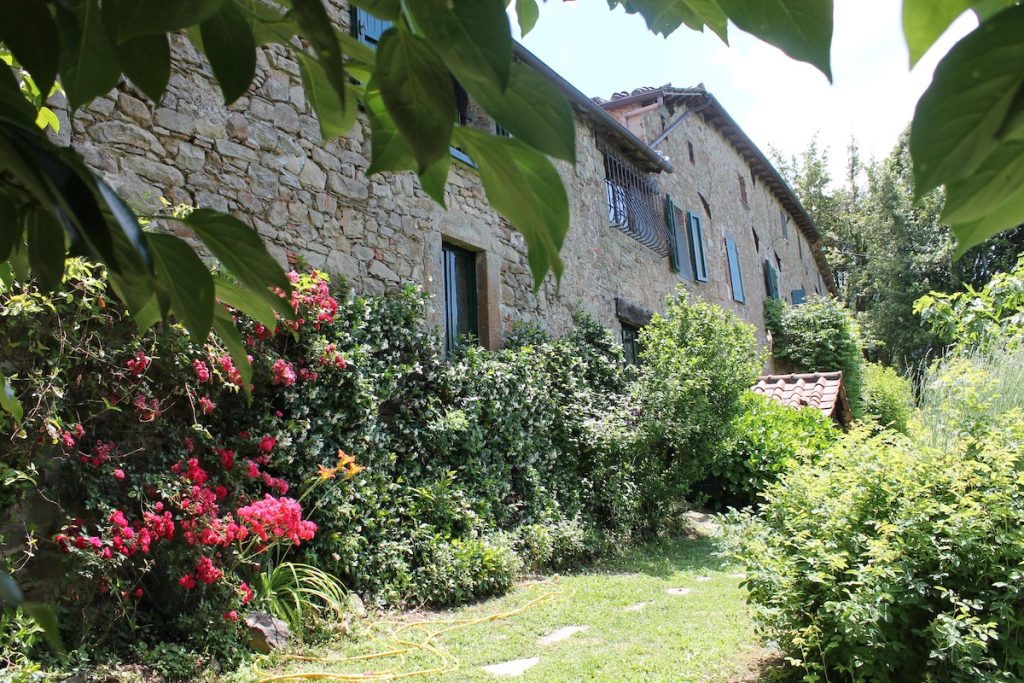
Celia: I’ve tried to love it and take care of it.
Enzo: The way we are is that we don’t want anything too modern. We get good vibes from old things. We preserved the structure like we found it.
Celia: We’ve made a video about the history of the house. It’s a typical casa colonica in a very beautiful position.
Enzo: In the house, there’s a fresco made by someone’s grandfather, and we have preserved and is still there.
The Garden
I felt that I had to embrace the land rather than try to make a garden on it. We put the pool at the side of the house so you can’t actually see it from the house. It doesn’t interrupt the countryside. We also made the pool a dark grey, so it doesn’t hit you, but fits in the color of the olive trees. I really didn’t want to spoil this very soft landscape.
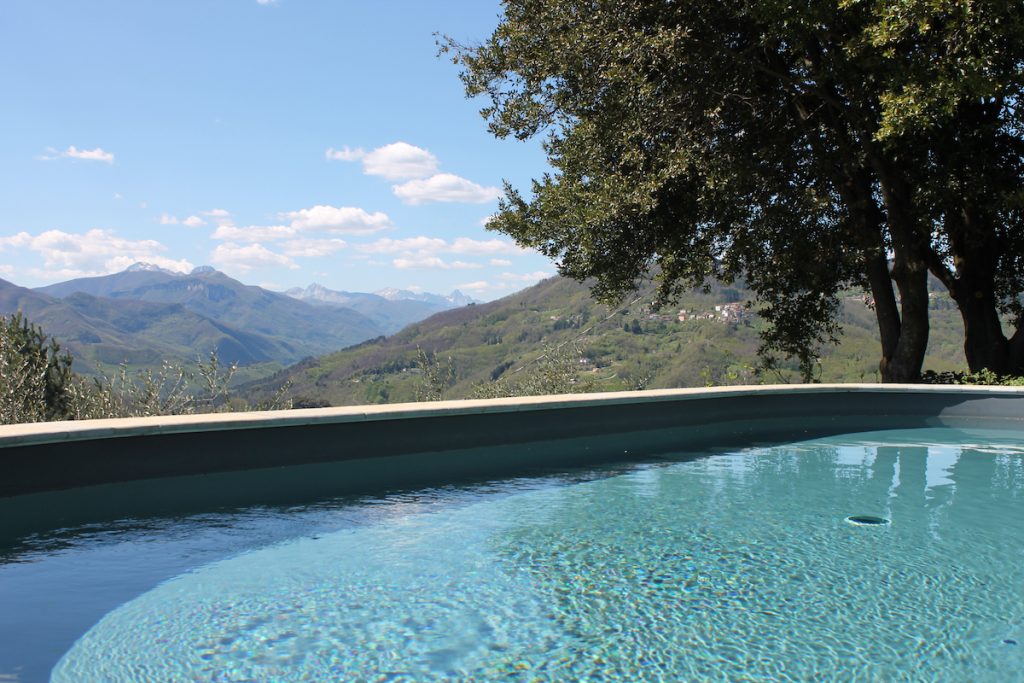
The water from the house is pumped up from a natural spring.
Managing a Vacation Rental
Celia: We’ve always let it out during the summer, and we used to go away. But the world has become more sophisticated since we arrived. People expect more so it’s become more of a business. We’re now around in the summer in case people have problems.
We have house information our website so people can find local sights. There are a lot of sporting activities. There’s something for everyone in the family.
We often get generational families and people who have been to university together and want to meet up. People come back year after year. We have made wonderful friends from all over the world.
Where do guests fly in from?
They fly into Pisa. Quite a few Americans seem to be coming in from Florence. I think there must be a hub somewhere in Europe that then directs them to Florence more than it used to.
Enzo: Pisa is about one hour away and Florence a bit longer.
Celia: Our village is in a very strategic place historically between Lucca and Florence. In medieval times, it was very important and that’s why there is a castle at the top of the hill. (Benabbio Castle)
It’s also not far from Genoa either.
Do you recommend that guests have a car?
Yes, although we do have a bus stop that was put in at the end of the road for our daughter when she went to elementary school. But there’s only a few busses per day. There’s also a taxi driver who lives in the village, but if you want freedom, it’s best to have a car. Often guests ask me for many ideas before they get here, but then end up go from the house to the village shop or restaurant and then back again. All their desires to sightsee seem to dissolve as they relax!
We have the most amazing village shop run by a lovely lady. In Benabbio we have two restaurants which is pretty amazing for a small village. One is a pizzeria and the other a trattoria which is highly rated by Tripadvisor. It is incredible.
Enzo: And for a reasonable amount of money. You get a gourmet meal with local produce.
Celia: It’s a huge asset. Also, in the summer, there is a village club, and they welcome everybody. Because we are outside of the village, we don’t get the village noise. Italian villages can be quite noisy.
Does the view still take your breath away?
Celia: When we first moved in, I promised to never take it for granted. It changes all the time and in winter, I call it the “Chinese painting mode” and then you get the “Van Gogh mode” with bright colors. Come September, the light changes and it becomes a much softer light.
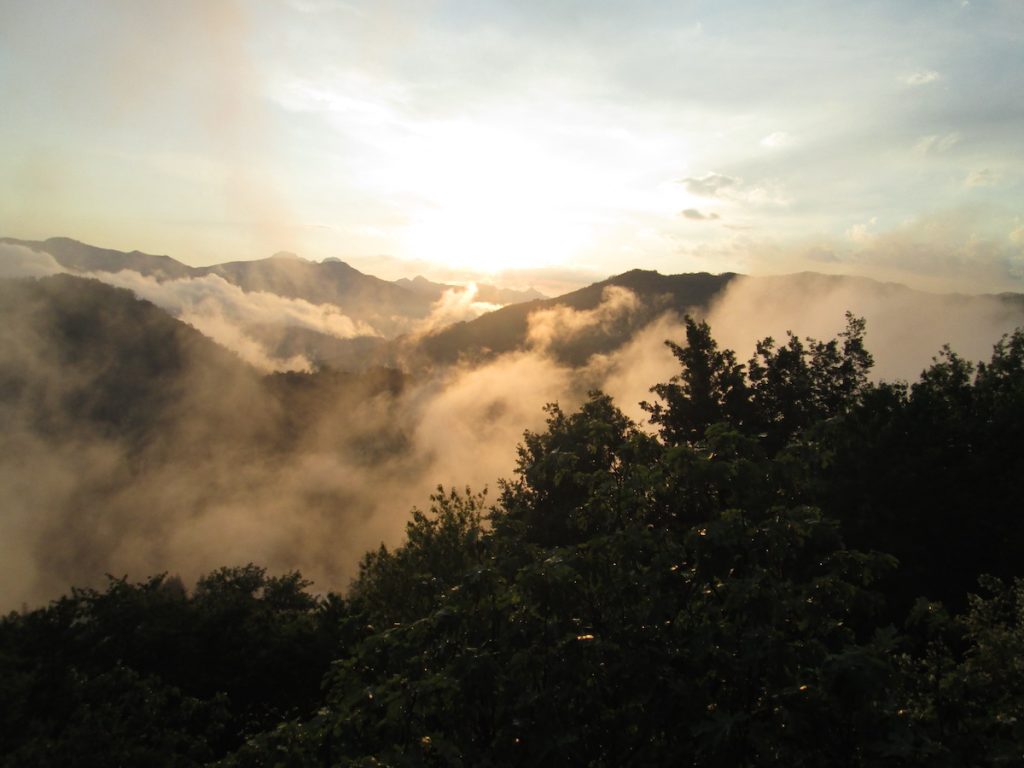
I never tire of it.
Enzo: Me too. There’s always something new and exciting from the window.
What is your definition of an expat?
Celia: I don’t consider myself an expat, but an immigrant. I think that an expat, by definition, has an intention of going back. This is my home. The word “expat” is from a colonial age.
What is key to adapting to life as a foreigner in Italy?
Learning the language and embracing it. Embrace everything.
As Enzo sometimes tells me, “your logic isn’t an Italian logic”. Every nationality has its ways, and you have to embrace it: the country that you’ve gone to and the culture that is there.
Enzo: And in the end, everything works out.
Celia: I have not had these problems that I see others have had.
Enzo, you are used large city life coming from Naples?
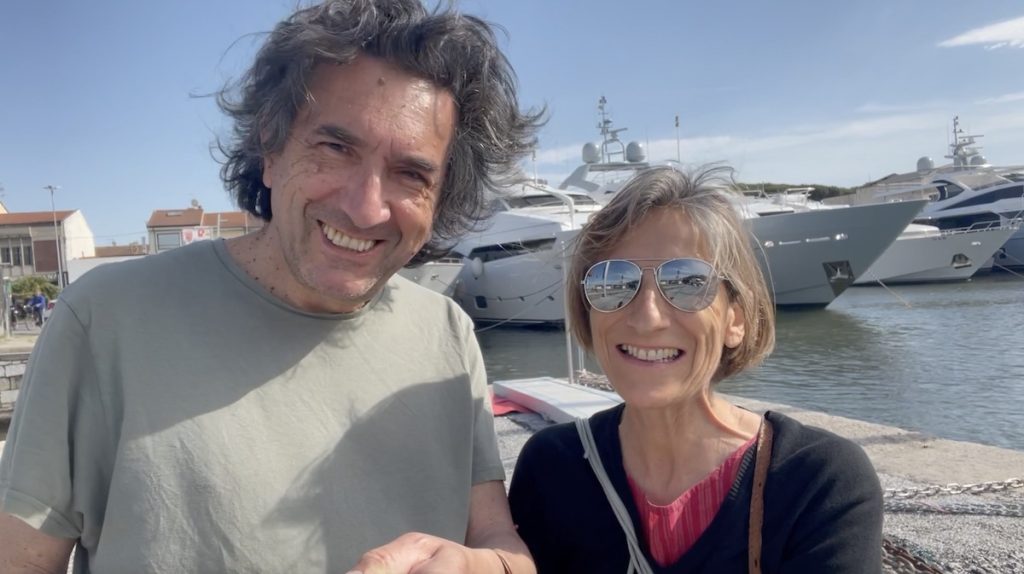
Absolutely. When I was in London, I was not overwhelmed because I’m used to an active place full of energy.
Celia: I love Naples and it’s very close to my heart. The reason why we didn’t move there is simply because there wasn’t much point swapping London for Naples.
Enzo, was it an adjustment for you moving to a smaller region?
I didn’t feel anything strange. I am a bit of an introvert you could say, but really, I’ve always loved Tuscany. The countryside is lovely. Lucca is a perfect balance because I have everything I need and it’s not maddening like a big city.
Celia, what do you miss about London?
My friends. I have very close friends and we all lived quite near to each other. Our daughter has moved back to that area.
When I came here, life was very different. I was one of the only foreigners. I was immediately taken into the community. Now there’s a big international community, so you can choose what you want to do. It’s a very different place. People who come now can have a very big support system.
What is the most important thing that you want people know about Lucca?
Celia: The thing about our area is that the village is still populated by local people. It’s still very much Italian and is very authentic. It’s got huge natural beauty. Forty-five minutes away we have a ski resort and an hour away we have the sea. There’s so much cultural and natural beauty — wonderful food and art. There’s amazing art in tiny churches.
Enzo: And it hasn’t been ruined by mass tourism. An authentic Italian experience.
Celia: The view from our house has not changed in five centuries.
SUBSCRIBE to Piazza Talk
VISIT Le Mura vacation rental

